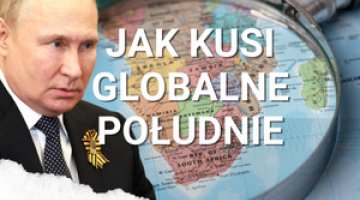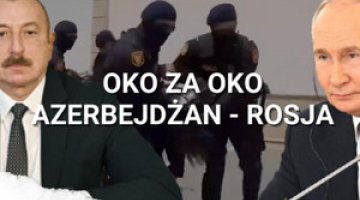Russia intensifies its nuclear blackmail
Recent days have seen an unprecedented escalation of nuclear rhetoric by Moscow. Two leading pro-Kremlin experts on international affairs, Sergei Karaganov and Dmitri Trenin, have called for tactical nuclear weapons attacks on NATO countries (they gave Poland as an example target) to “break the will” of the West and convince it that Russia’s nuclear threats are not a bluff. In their view, without doing so, Russia will not be able to achieve its goals in Ukraine and Europe (“restoring the strategic balance”) or avoid full-scale nuclear war with the US. Other prominent experts (including Ivan Timofeyev, director of the Russian Council on International Relations, a state-run think tank) have spoken out against this, arguing that the profit-and-loss calculus would work out unfavourably for Russia, and that a tactical nuclear attack would provoke a full-scale nuclear war.
President Vladimir Putin himself declared on 16 June that Russia does not currently need to use nuclear weapons, but would do so if the existence of the Russian state, its “territorial integrity, independence and sovereignty” is threatened. In doing so, he stressed that Russia’s nuclear arsenal is stronger than that of the West, and would therefore not agree to any disarmament talks in this regard. He also pointed out that Russian nuclear weapons have already been deployed in Belarus to deter those in the West who want Russia’s strategic defeat.
Commentary
- The wave of ‘discussions’ about the use of nuclear weapons has been at the very least inspired, if not actually coordinated, by the Kremlin. Its aim is to intimidate the West and convince it that further increases in military aid to Ukraine will lead to a radical escalation, up to and including nuclear war with NATO. This is indicative of Moscow’s growing frustration at the fact that its efforts so far to get the West to reduce its support for Kyiv have proven to be not merely ineffective, but actually counter-productive. It is moreover a consequence of the Russian army’s lack of success in Ukraine.
- For the first time in these Russian experts’ ‘discussions’, a detailed outline of their reasoning to justify the rationality of the use of tactical nuclear weapons has appeared. It assumes the following: 1) the war with Ukraine is essentially a confrontation with the West as a whole; 2) a Russian victory in a scenario of long-term conflict is not possible, and its cost would be too high; 3) the West’s growing support for Kyiv (especially in the form of the supply of increasingly technologically advanced weapons) will inevitably lead to a clash with NATO and unrestricted nuclear war anyway; 4) Washington will not dare to inflict a retaliatory strike (even a conventional one) on Russian territory for fear that a Russian response could target American territory (“it is doubtful that the Americans would sacrifice Boston for Poznań”, Trenin writes); 5) Article 5 of the North Atlantic Treaty (on responding to aggression) is in fact a myth; 6) the political cost of the odium that will fall on Russia for breaking the nuclear taboo will be limited (“Winners are not judged”).
- This Moscow-orchestrated ‘discussion’ is most likely a kind of test for the Kremlin to assess how the West would respond to an actual Russian nuclear attack. It is intended to provoke polemics and possible divisions within the Alliance over NATO’s response to such an attack. It is also possible that this change in tone also reflects ongoing deliberations within the Kremlin about the desirability of Russia using nuclear weapons in the conflict with Ukraine, although at present such a scenario is still very unlikely.





